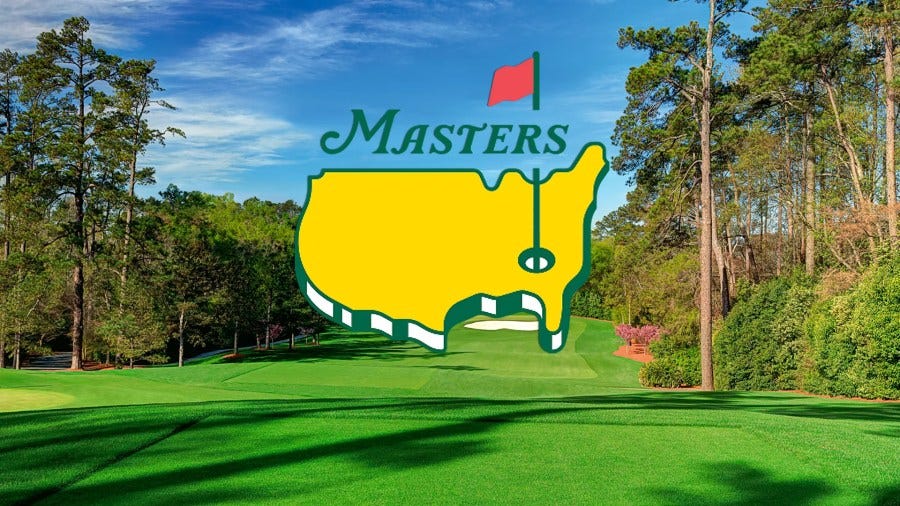Amazon At Augusta: The Masters Opens Its Gates to Streaming
The 2026 Masters will add four hours of Amazon Prime Video broadcast, lifting total coverage to 27 hours.
Advertising, Partnerships, or PR Inquiries | Archive
The Masters has never been in a rush to change. For decades, Augusta National limited coverage to tight broadcast windows, rationing the images of its immaculate fairways and forcing fans to live with scarcity.
In a media world built on abundance, that scarcity became mystique. Now the tournament has made its boldest shift in years, handing Amazon Prime Video four hours of early-round coverage from 2026, a move that transforms how fans experience golf’s most sacred broadcast.
The deal gives Amazon a two-hour slot on Thursday and Friday from 1pm to 3pm ET, leading into ESPN’s traditional coverage. Those early hours often contain the rawest drama: debutants learning the weight of Augusta, veterans fighting to stay relevant, amateurs punching above their weight. Historically, much of that was hidden. By opening the gates to Amazon, Augusta is letting fans into the parts of the story that once remained off-screen.
For context, the expansion is significant. In 2024, the Masters aired just 18 hours of broadcast golf. In 2025, small increments were added through Paramount+ and CBS. With Amazon’s deal, 2026 will total 27 hours of coverage, a 50% jump in two years.
For an institution that has historically moved at glacial pace, that’s a cultural shift disguised as a programming tweak. The choice of Amazon matters too, because it isn’t just another broadcaster but a platform that shapes how people consume sport across devices, markets, and demographics.
Augusta’s reputation has always been bound up in control. From the no-phone policy on the grounds to the strict rules on sponsors, the tournament has preserved a sense of separation from modern sport’s commercial chaos. Fans only ever saw what Augusta allowed, and in that selectivity lay the power.
So the decision to extend coverage raises questions: does greater access risk eroding the aura, or does it protect relevance in an era where scarcity looks more like invisibility?
Follow me for more updates on LinkedIn | Instagram | X
Amazon’s involvement also marks another chapter in its steady takeover of sports broadcasting. Thursday Night Football, Premier League games in the UK, and tennis rights across Europe, each move has tested audiences’ willingness to embrace streaming for live sport.
The Masters, however, is different. It is not a rights war prize to be bought; it is an invitation, extended carefully by Augusta to a chosen partner. That partnership signals not just trust but recognition that audiences demand more than a Saturday-Sunday crescendo. They want the whole story from the opening tee shots to the final putt.
Still, there is unease. The Masters’ aura was partly born of rationing. When coverage was limited, every broadcast minute felt heightened, every camera angle was an event. With 27 hours available in 2026, that scarcity decreases a little.
The tournament will argue that mystique comes not from withholding but from presentation, from the way Augusta controls its aesthetic, its production, and its messaging. Amazon, if it wants to remain in the club, will have to respect that tone.
Yet history suggests that each innovation, once resisted, eventually becomes part of the tradition itself. When colour television arrived, it changed the way Augusta looked but soon became inseparable from its identity. More coverage via streaming may feel disruptive now, but in five years it will likely be considered the standard.
For Augusta, this is both expansion and experiment, a way to broaden access without surrendering full control. For Amazon, it is a cultural prize, a chance to associate Prime Video with one of the most recognisable events in sport. For golf, it is an opportunity to catch new fans at a time when every sport is fighting for relevance in a crowded market.
The Masters’ power lies in its ability to balance tradition with change. By letting Amazon through the gates, it has taken a step towards the future, one that will test whether mystique can survive in an age of abundance. The answer will define not just how we watch Augusta, but how golf positions itself in the global hierarchy of sport.
Thanks for reading. If you hit the like button, you’ll be doing me a huge favour.
If you know someone who will enjoy this article, please share it with them.





